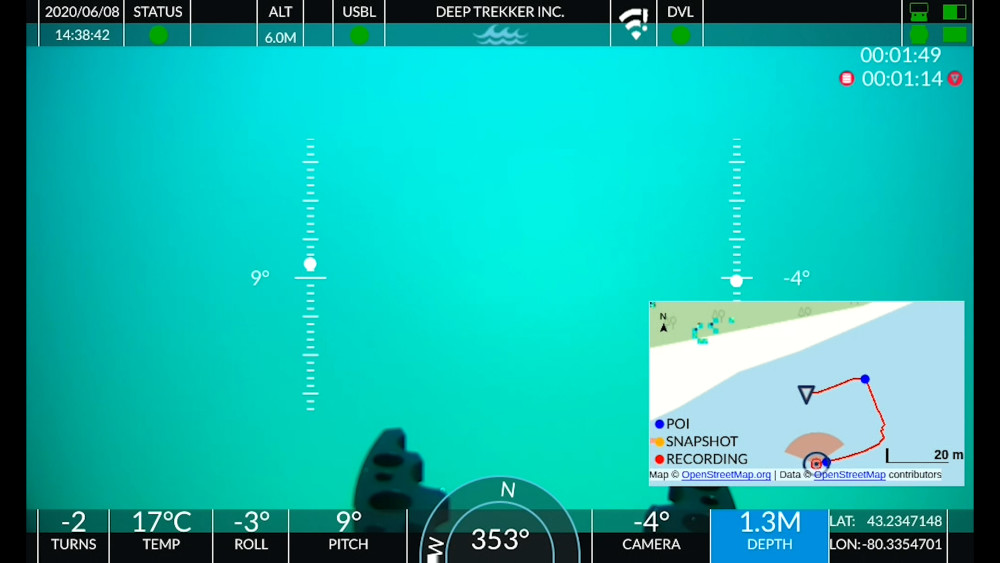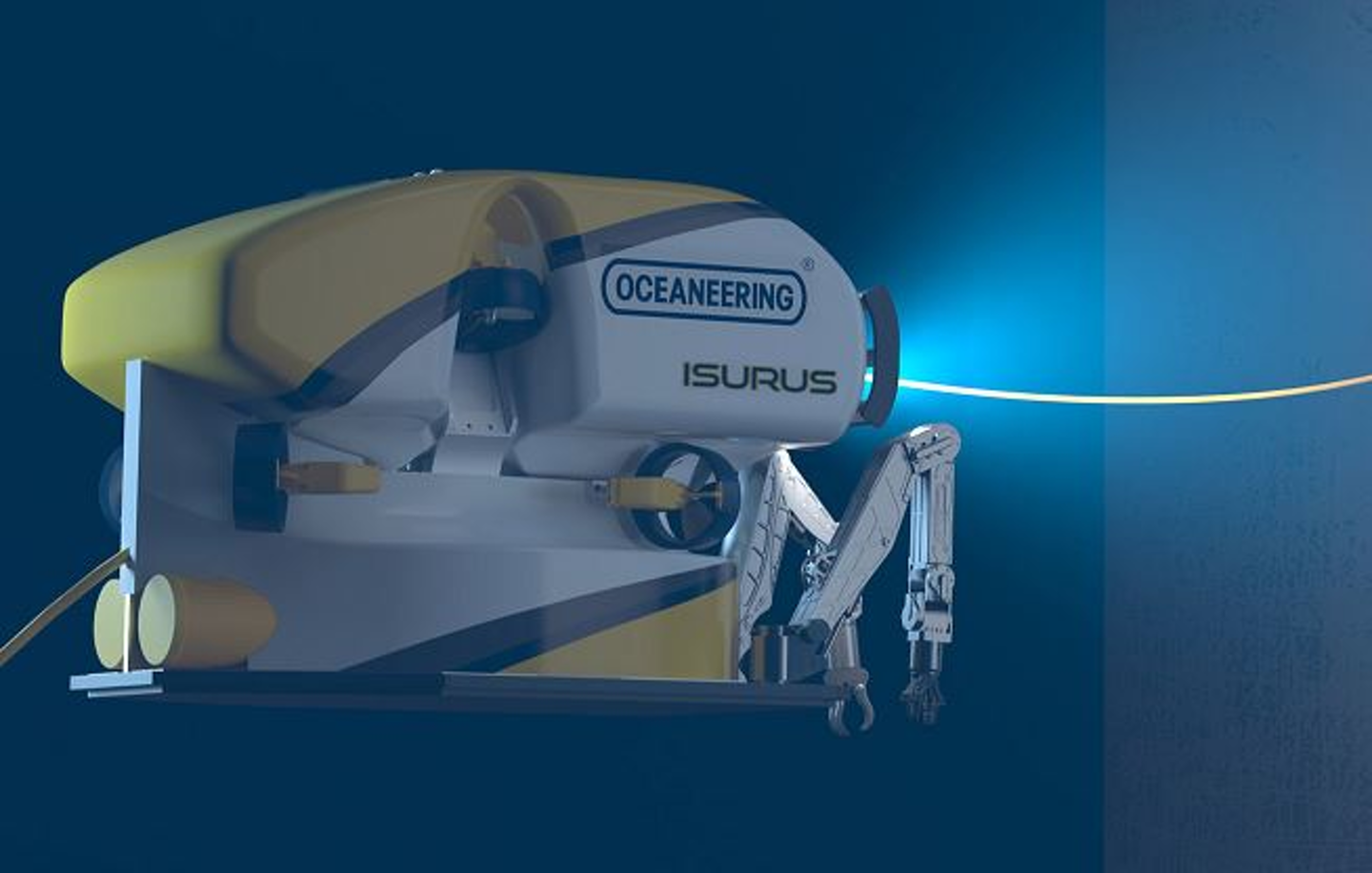Home › Forums › ROV › ROV Industry Vocational Training › Entry level requirements for ROV personnel clarified by IMCA
- This topic has 5 replies, 5 voices, and was last updated 14 years, 11 months ago by
tc1.
-
AuthorPosts
-
June 18, 2009 at 2:06 pm #2603
James McLauchlan
ParticipantAlso added to the news section on the front page but worth adding in here as well.
————————————————————————–
Entry level requirements for ROV personnel clarified by IMCA
The International Marine Contractors Association (IMCA) has published a reviewed and updated version of their ‘Entry Level Requirements and Basic Introductory Course Outline for New Remotely Operated Vehicle (ROV) Personnel’ (IMCA R 002 Rev. 2), which reflects technological and operational developments since the initial document was published in January 2000.
“In particular, the guidance on entry-level criteria for those undergoing initial ROV training courses is clarified and repeated in a new checklist format,” explains IMCA’s Chief Executive Hugh Williams. “This is intended to make those requirements clear and ensure that those offering, or considering undergoing training courses, are aware of the skill requirements of potential employers and thus their future employment prospects.
“We would particularly ask all training providers to ensure that teaching and marketing staff as well as potential students are made aware of these requirements. IMCA does not approve any ROV-related training courses and any organisation using our material to help in the development of their courses should check with IMCA HQ the wording of any references to IMCA used in teaching or promotional materials.”
The new version of ‘Entry Level Requirements and Basic Introductory Course Outline for New Remotely Operated Vehicle (ROV) Personnel’ can be downloaded free of charge from IMCA’s members-only website; printed copies cost £2.50 for members and £5 for non-members (plus 20% for delivery outside Europe). Further information is available at http://www.imca-int.com and from publications@imca-int.com or from IMCA at 5 Lower Belgrave Street, London SW1W 0NR, UK. Tel: +44 (0)20 7824 5520; Fax: +44(0)20 7824 5521.
April 19, 2010 at 2:50 pm #23822Kidd57
ParticipantInteresting… my original post took a critical a swipe at IMCA for charging to download their ROV standards etc., however, I went to the site and downloaded several PDF files without so much as registering my name or paying them one red cent.
I am guilty of running my mouth before checking the facts, but, in my defence, even the PDF’s have a price next to them on their website. Regardless the PDF’s open right up and save to your hard drive.
Of course… I would never do such a thing.
Either thier webmaster is an idiot, or they are on the honor system, they don’t elaborate which.
April 19, 2010 at 11:17 pm #23823rov_er
ParticipantAs i said in another post,
I think this document gives a very clear guidance about entry level requirements for ROV courses.
On the other hand, it looks to me ineffective, unless IMCA does not take action against those IMCA affiliated schools that do not respect the guidance.
This is proved by the fact that the document was revised in May 2009, and since then nothing has changed within ROV schools…rov_er
April 20, 2010 at 7:11 am #23824James McLauchlan
ParticipantI think that’s why they call them guidance as opposed to law, which the UK HSE regulations fall under. For example UK diving regulations fall under HSE law. ROV/IMCA guidance notes do not.
As far as we involved in ROV is concerned it’s the same as having HSE laws (on paper) but with no way of enforcing them. I also feel that if these notes are guidance then schools should not be in a position to issue a grade other than trainee.
I feel that the industry now sees PTII as having been degraded by these schools to the level of trainee and the notion of the position ‘trainee’ is vanishing. Soon they’ll probably be pumping out PT1’s to try and get a jump on the next school down the road! This has all come about because IMCA has no teeth, nor it appears bottle, to try to ensure it’s guidance is adhered to in the spirit of their content. Do not confuse the IMCA with the HSE when it comes to power and enforcement.
Not forgetting that the IMCA stands for International Marine Contractors Association and is not a government body. I would therefore suggest that, in general terms, the IMCA issues guidance to protect the interests of it’s member contractors and not those that are not members. That stands to reason.
You can see this wothin part opf their statememnt above:
This is intended to make those requirements clear and ensure that those offering, or considering undergoing training courses, are aware of the skill requirements of potential employers and thus their future employment prospects.
Here you can clearly see that the statement has been issued, and the guidance adjusted, to suit the needs of the employers (i.e. members of the IMCA). It’s a veiled attempt to protect their assets and eventually profit margin. I guess they are starting to feel the effects of all these cooks and bottle washers truing up at the work-site as PTII’s!
In short the IMCA is doing what it was fromed to do… look after it’s marine contractor members.People should remind themselves that the IMCA is nothing other than a bunch of companies that have bandied together to form an association where it’s members are looking to protect the commercial interests of their chosen business/industry.
Is it any wonder therefore, that these private companies choose to charge for documents their association has produced? They probably make a profit from that alone. No surprise there either.We could start up an International Subsea Contractors Association (ISCA). It’s a free world (in theory) so the ISCA could charge for the download of documents written by the association. However guidance documents issued by the ISCA would have as much clout, in the eyes of the law, as the IMCA. They would be unenforceable in law and therefore hard to regulate.
April 20, 2010 at 8:33 am #23825rovnumpty
ParticipantI’d be laughing if I wasn’t cryin so hard.
IMCA entry guidelines? Right up there with the chocolate screw driver and a condom machine in the vatican.
You hit the nail on the head James. Nothing enforceable.
Yet most other skilled professions offshore have enforceable regulations. No company would dare hire a sparky for offshore without proveable training and a proveable understanding of current regulations and working practices.
If the individual was found to have falsified these documents, he could be prosecuted. Yet ROV companies make up CVs (I’ve seen some whoppers which are supposedly mine) all the time to get bodies on board.
April 20, 2010 at 12:28 pm #23826tc1
ParticipantWas just thinking…..
Back in the late seventies early eighties in the diving side of our industry we were very loosely overseen by the cranage division of the HSE and the inspectors knew as much about diving as an ice cream salesman. However following the loss of many of our collegues, ( Heres to absent friends ) the government through the HSE decided that a set of rules were required to address the loss of lives as the oil business expanded.Before these rules were in place we had probably one crane inspector covering each region.
There followed a set of rules based on the then Royal Navy Diving Manual ( God Bless The Matelots ) which the slightly increased number of graduate of health and safety at work inspectors started, with their educated minds ,to interperate these rules as they thought fit. Ive got to say, that in the beginning ,their interpretation was being forever challenged as ,although they were graduates of health and safety, they were not divers.
Around this time along came the AODC who saw a money making niche because they were made up of people with knowledge of the offshore and onshore diving industry and had better knowledge of diving than the hse graduates.They liased with the hse and made themselves important to clients in the industry and hence clients started asking us for AODC qualifications based on their guidelines.
Many diving contractors joined but many of the older generation saw it for what it turned into which was a monthly meeting somewhere on the A1 between the AODC hierarchy and the AODC training schools.Thats when it started costing workers in the industry big bucks to learn how to do the things that we had done for years.
The AODC disappeared after a few years and surprise surprise along came the new body called IMCA to carry on thinking up ways to get our hard earned bucks.
This carries on today and Im sure in a few years time and many training schools later we will have some other body looking for our bucks.
Now Im sorry for the long rant but the HSE is still very much in existance and has sharp teeth so why arent the governments and big companies that use ROV and Diving services funding proper training in making our industry a safer place to work with government training schools built and staffed by trained teachers ( Not Trainers ) with them being funded by the revenues that they rake in off our backs.
Now Ive had a couple of beers prior to this rant and Im sure many people are gonna jump on it but HEY what the hell it might be good for a page or two of rants and corrections.
Cheers to everyone ROV and Divers alike Im sorry for boring you but what the hell……………… -
AuthorPosts
- You must be logged in to reply to this topic.



